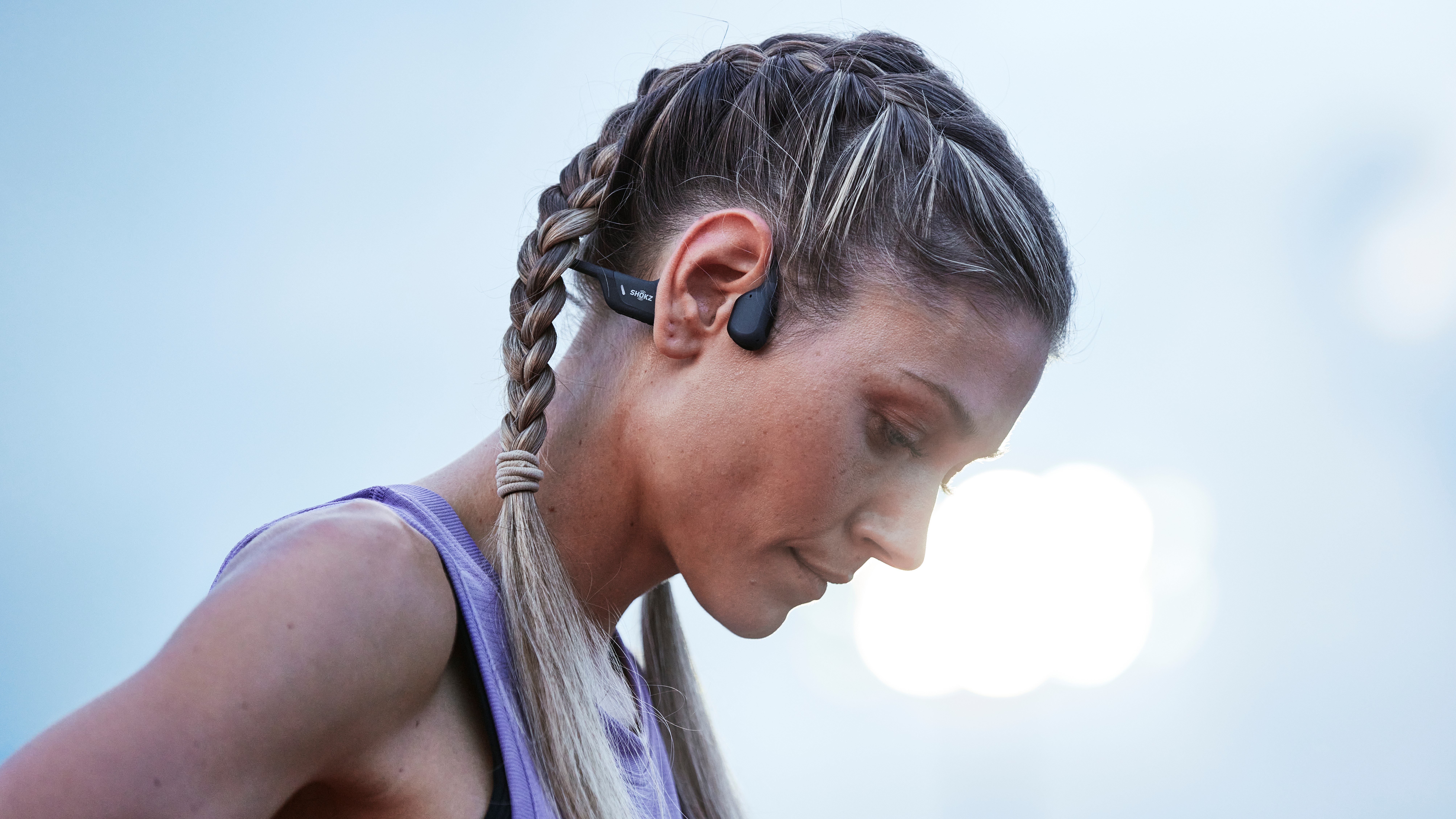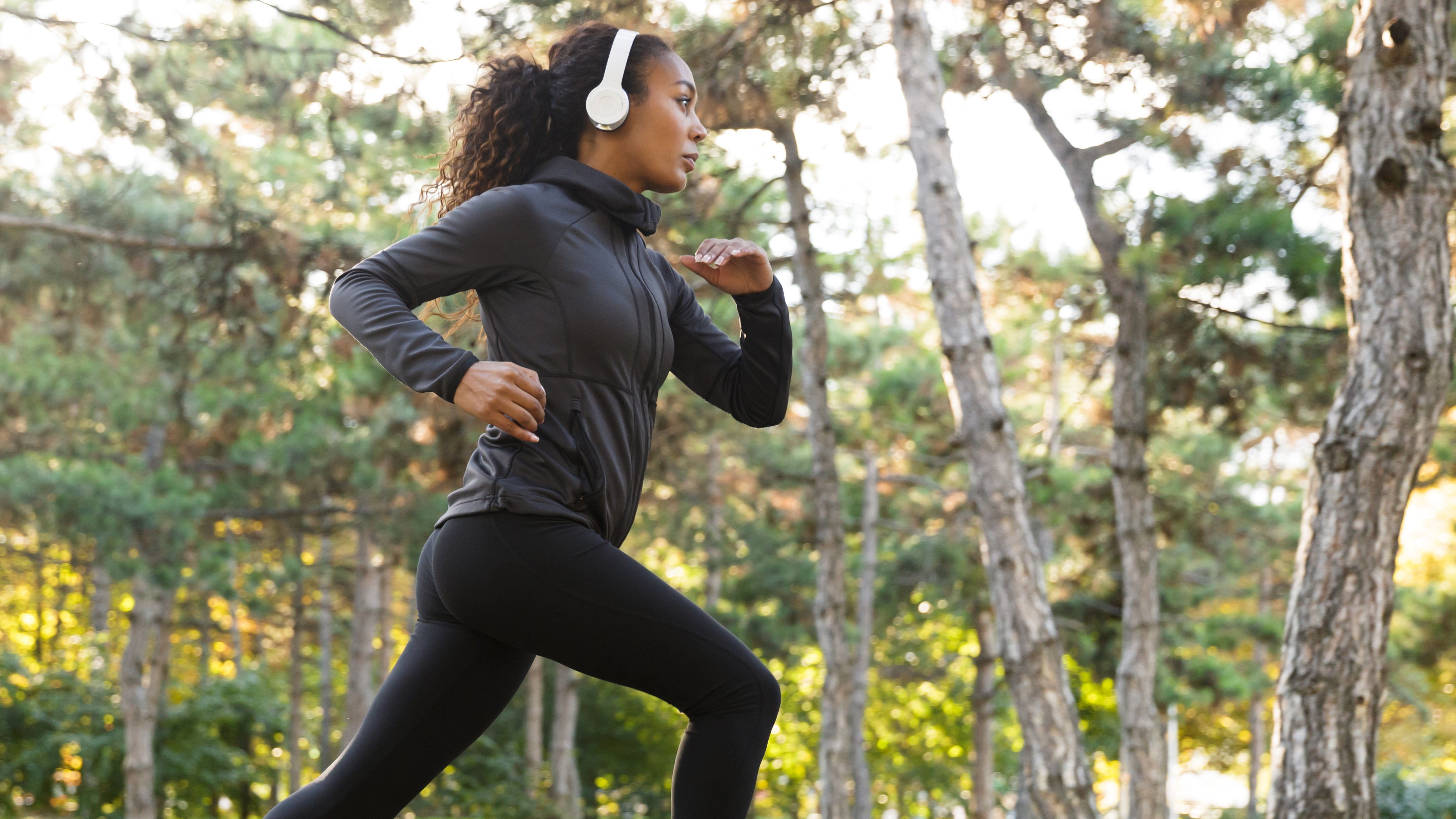Does listening to music make you run faster and train harder?
How music can increase enjoyment, endurance and performance

What are the best road running shoes? How do I choose a running watch? What should I eat before I run? All valid and important questions every new runner asks, but there’s likely another, more pressing question you want to know the answer to but have no idea who to ask: what music should you listen to?
Are beats-per-minute decisive to your performance? It’s the received wisdom, but is it actually true? Long runs are the perfect time to catch-up on podcasts and audiobooks, but is that a huge mistake?
It’s not just an important matter for runners. Keeping a beat is just as applicable to workouts and – with the rising popularity of waterproof headphones – also to swimming.
This is what science says about music and exercise. Are you ready to change your tune?
Is there a scientifically proven link between music and exercise?
Gyms, exercise classes and even sports arenas regularly have high tempo music pumping out and there are reasons for that. “The link between music and exercise centres around rhythm, tempo and the affective influence of music on the brain and body,” says Carolina Goncalves, a Superintendent Pharmacist at Pharmica, citing a psychological study published in 2020 that found high-tempo music (but not slow or medium-tempo music) to exert positive effects on physical activity. That study found such music not only led to people enjoying exercise, but increased their physical performance and their oxygen consumption (so, the efficiency of exercise) while reducing perceived exertion. But it had no effect on their heart rate, which might come as a surprise.
Just as importantly, music can help you enjoy exercise. “Music plays a central role in the overall exercise experience,” says Bryce Hastings, Head of Research at workout programs company Les Mills. “Having a sense of enjoyment – or even just appreciating the environment you’re working out in – has been identified as a key driver of long-term exercise adherence.” That’s crucial for motivating beginners, who can easily get turned off by the discomfort of exercise.

Can music really make exercise feel easier?
How long you have left to run, how fast you’re running and how hot or humid it is are all fears and feelings that music can help alleviate. “Music is reported to decrease the rate of perceived exertion, enabling users to exercise harder or for longer when compared to exercisers that were not listening to music,” says Goncalves. That’s backed-up by a study of 41 athletes published in 2013 that found that music greatly decreases the perceived exertion during strenuous activity.
Get daily insight, inspiration and deals in your inbox
Sign up for breaking news, reviews, opinion, top tech deals, and more.
“Our research on immersive fitness shows that having the right combination of music and visuals can drive intensity while reducing perceived effort,” says Hastings. “So you end up working harder and getting better results, without even realising because you’re having more fun.”
Can music affect your mood when exercising?
Music is also an effective means of mood regulation, which is crucial when exercising. “It has a profound effect on the psyche and can be used as a stimulant or relaxant, both before or during exercise,” said Goncalves.
A study published in 2016 found that carefully selected music improves energy efficiency and exercise performance, it elicits the release of feel good hormones, and it primes the body for action. Crucially, music also evokes positive moods and memories ... and diverts our attention away from unpleasant experiences such as fatigue, pain and the downright boredom of running around the local park again.

Can music increase physical performance?
If your mind and body are primed and ready for action – with the aid of music – then you can perform better. “Music can influence how we feel and think, and in turn have an ergogenic (performance-enhancing) effect on both cognitive and physiological aspects of exercise performance,” said Goncalves.
So-called smart AI-powered music workouts can even give an athlete a physical advantage, according to a paper published in 2016, which concludes that race organizers should consider banning headphones for that reason alone (many do simply because of the dangers of traffic).
“Music may even be enhanced so that music becomes a sort of a 'personalized, legal drug’ ... it may be impossible to fully comprehend the power of the music playlist used by an individual runner during a race.”
Do beats-per-minute make any difference?
According to a paper published in 2011 motivational music has a strong rhythm and a tempo of over 120 beats-per-minute (BPM) and is typically energetic and upbeat, while some music is neutral and elicits no motivational response.
But it depends on what you’re doing. “Music that helps drive the required cadence of an activity like running or cycling helps us to maintain a regular and consistent tempo,” says Hastings, something demonstrated in a study published in 2012 in which cyclists used 7% less oxygen when cycling to the beat of a track.
However, BPM is far less important to HIIT training. “The extreme level of intensity and the drive to push yourself as hard as possible means you’ll self-select the pace, rather than be influenced by the beat of the music,” says Hastings. In this case it helps to have a motivational instructor rather than motivational music.
Another important factor is the synchronicity between music tempo and the tempo of movement of the exercise. Here it’s a face-off between synchronous music (which is in sync with the tempo of the exerciser) and asynchronous music (where the music is not in sync with the exerciser). “Both synchronous and asynchronous music is reported to improve exercise performance, with synchronous music offering a greater improvement in performance,” said Goncalves, citing a paper published in 2006 on the effect of music on 400 meter sprinters. So any music is better than no music.

Does music have to be loud to be motivating?
But how loud does it have to be? “Musical volume is associated with perceived music usefulness, with individuals opting to increase music volume when the exercise intensity significantly increases,” said Goncalves, citing a paper published in 2014. Loud music also appears to help maintain motivation.
What about podcasts and audiobooks?
If you’re not particularly into high-tempo music then the good news is that it’s okay to listen to podcasts and audiobooks while exercising. “Due to the absence of an energetic, consistent beat or rhythm, they don’t necessarily offer the same motivational effect music does,” says Goncalves.
However, crucially, this is about what suits you, not what suits the herd. “Individual differences are significant when it comes to music and its influence on performance, so depending on the exercise and the person [listening to podcasts or audiobooks] may help with performance as well as make the activity or exercise more enjoyable.”
For example, a study published in 2016 found that listening to personally preferred music increases exercise intensity.
Why to exercise in silence
There may be some science behind it, but there are practical and legal reasons not to listen to music. Running and keeping on running is about your mental state and music – as well as podcasts and audiobooks – is a distraction.
If you’re obsessed with improving your physical performance and endurance then some runners will advise you to concentrate on your breathing, something that music can distract you from focusing on. Besides, more and more organized races ban the use of headphones, typically when they use roads that aren’t 100% closed to traffic. So if you intend to enter races then you should be comfortable with running in silence (or with only the noise of the crowd).
You don’t have to listen to any music. You don’t have to listen to anything. In fact, elite runners tend not to listen to anything at all. However, when you’re just starting out some kind of distraction can be a good idea. High tempo music can help some people improve their performance, but do whatever works for you.
Whatever songs you love to exercise to, it’s more important to exercise and keep exercising than what you listen to. Give every option a try – from high-tempo Spotify playlists to classic audiobooks – because sound can be a powerful resource that can make a difference to your health, your wellbeing and your motivation.
This article is part of TechRadar's Get Fit in 2022 series – a collection of ideas and guides to help get your new year's health goals off to the right start, whatever your current level of fitness.
- We've tested and ranked the best fitness trackers
Jamie is a freelance tech, travel and space journalist based in the UK. He’s been writing regularly for Techradar since it was launched in 2008 and also writes regularly for Forbes, The Telegraph, the South China Morning Post, Sky & Telescope and the Sky At Night magazine as well as other Future titles T3, Digital Camera World, All About Space and Space.com. He also edits two of his own websites, TravGear.com and WhenIsTheNextEclipse.com that reflect his obsession with travel gear and solar eclipse travel. He is the author of A Stargazing Program For Beginners (Springer, 2015),
